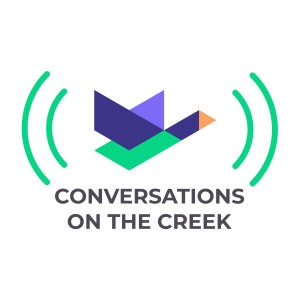

Rebuilding Higher Education Around Solving Real-World Problems - Dr. Kristin Wobbe, Director of the Center for Project-Based Learning at Worcester Polytechnic Institute
What happens when a university rethinks the whole higher ed model rebuilds it around hands-on, project-based learning?
Matt Kirchner dives into the bold model pioneered by Worcester Polytechnic Institute with Dr. Kristin Wobbe, Director of the Center for Project-Based Learning. A biochemist turned curriculum innovator, Kris has spent nearly two decades helping WPI embed real-world projects into every stage of a student’s education.
From first-year seminars on global challenges to immersive junior-year team projects with community partners around the world, WPI’s model turns students into creators, collaborators, and critical thinkers from day one.
Whether you're a university leader or an instructor in search of a better way to teach, this episode offers a masterclass in how to make learning stick.
Listen to learn:
- Why students don’t need to “know everything” before they dive into hands-on learning
- How WPI redesigned its calendar and credits to prioritize deep project work
- What first-year students can accomplish when they take on global problems
- How project-based learning transforms both faculty culture and student confidence
- Why WPI students are more prepared for the workforce than their peers
3 Big Takeaways from this Episode:
1. Project-based learning works best when it starts early and is embedded across the entire student journey.
At WPI, students can opt into the Great Problems Seminar in their first year—a two-course sequence that explores global issues like food security, energy, and AI through interdisciplinary teamwork. By senior year, every student must complete a Major Qualifying Project worth three full courses, often in partnership with faculty or industry, making project-based learning a requirement, not an add-on.
2. The humanities directly enhance technical learning and student outcomes.
WPI’s alumni data shows students who complete their humanities and arts curriculum earlier perform better in technical coursework later on. These experiences sharpen communication, interdisciplinary research, and critical thinking skills—essential for identifying problems worth solving and communicating solutions effectively in STEM fields.
3. Project-based learning is scalable far beyond polytechnic institutions.
Through WPI’s Center for Project-Based Learning, Kris and her team have supported schools ranging from the Air Force Academy to community colleges and liberal arts institutions like the New England Conservatory of Music. With 85% of WPI faculty incorporating projects into their courses—and over half of student work now project-based—the model proves adaptable across disciplines, schedules, and resource levels.
Resources in this Episode:
To learn more about the Center for Project-Based Learning at Worcester Polytechnic Institute, visit: https://wp.wpi.edu/projectbasedlearning/
Other resources:
- Read Kris's book Project-Based Learning in the First YearBeyond All Expectations
We want to hear from you! Send us a text.
Instagram - Facebook - YouTube - TikTok - Twitter - LinkedIn
More Episodes
All Episodes>>Create Your Podcast In Minutes
- Full-featured podcast site
- Unlimited storage and bandwidth
- Comprehensive podcast stats
- Distribute to Apple Podcasts, Spotify, and more
- Make money with your podcast












